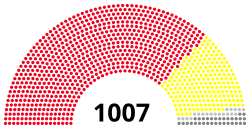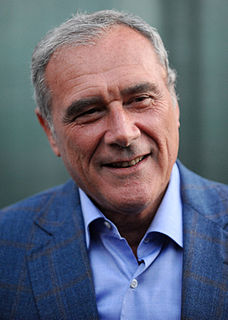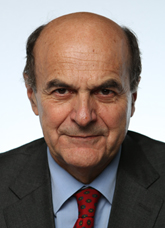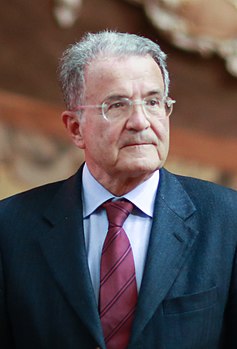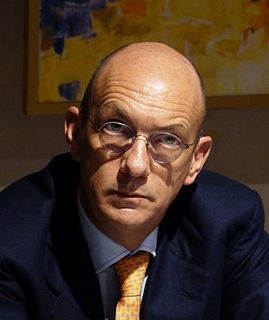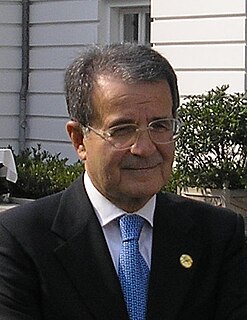| ||||||||||||||||||||
| ||||||||||||||||||||
1007 voters: 315 Senators, 4 Senators for life, 630 Deputies and 58 regional representatives 672 or 504 votes needed to win | ||||||||||||||||||||
|---|---|---|---|---|---|---|---|---|---|---|---|---|---|---|---|---|---|---|---|---|
| ||||||||||||||||||||
Composition Napolitano 738 Rodotà 217 Others 20 Invalids, blanks 32 | ||||||||||||||||||||
| ||||||||||||||||||||
Indirect presidential elections were held in Italy between 18 and 20 April 2013. The result was the re-election of Giorgio Napolitano, [1] the first time a President had been elected for a second term. [2]

Italy, officially the Italian Republic, is a country in Southern Europe. Located in the middle of the Mediterranean Sea, Italy shares open land borders with France, Switzerland, Austria, Slovenia and the enclaved microstates San Marino and Vatican City. Italy covers an area of 301,340 km2 (116,350 sq mi) and has a largely temperate seasonal and Mediterranean climate. With around 61 million inhabitants, it is the fourth-most populous EU member state and the most populous country in Southern Europe.

Giorgio Napolitano, is an Italian politician who served as the 11th President of the Republic from 2006 to 2015, and the only Italian President to be reelected to the Presidency. Due to his monarchical style and his dominant position in Italian politics, critics often refer to him as Re Giorgio. He is the longest serving President in the history of the modern Italian Republic, which has been in existence since 1946.
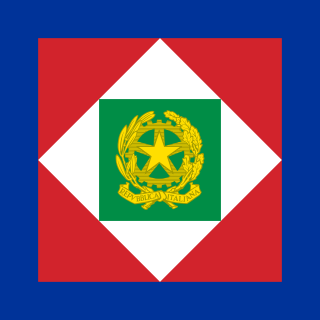
The President of the Italian Republic is the head of state of Italy and in that role represents national unity and guarantees that Italian politics comply with the Constitution. The President's term of office lasts for seven years. The 11th President of the Republic, Giorgio Napolitano, was elected on 10 May 2006 and elected to a second term for the first time in Italian Republic history on 20 April 2013. Following Napolitano's resignation, the incumbent President, former Constitutional judge Sergio Mattarella, was elected at the fourth ballot with 665 votes out of 1,009 on 31 January 2015.
Contents
Only members of Parliament and regional delegates were entitled to vote, most of these electors having been elected in the 2013 general election. As head of state of the Italian Republic, the President has a role of representation of national unity and guarantees that Italian politics comply with the Italian Constitution, in the framework of a parliamentary system.

The Italian Parliament is the national parliament of the Italian Republic. The Parliament is the representative body of Italian citizens and is the successor to the Parliament of the Kingdom of Sardinia (1848–1861) and the Parliament of the Kingdom of Italy (1861–1946). It is a bicameral legislature with 945 elected members and a small number of unelected members (parlamentari). It is composed of the Chamber of Deputies, with 630 members (deputati) elected on a national basis, and the Senate of the Republic, with 315 members (senatori) elected on a regional basis, plus a small number of senators for life, either appointed or ex officio. The two houses are independent from one another and never meet jointly except under circumstances specified by the Constitution.
A head of state is the public persona who officially represents the national unity and legitimacy of a sovereign state. Depending on the country's form of government and separation of powers, the head of state may be a ceremonial figurehead or concurrently the head of government. In a parliamentary system the head of state is the de jure leader of the nation, and there is a separate de facto leader, often with the title of prime minister. In contrast, a semi-presidential system has both heads of state and government as the leaders de facto of the nation.


